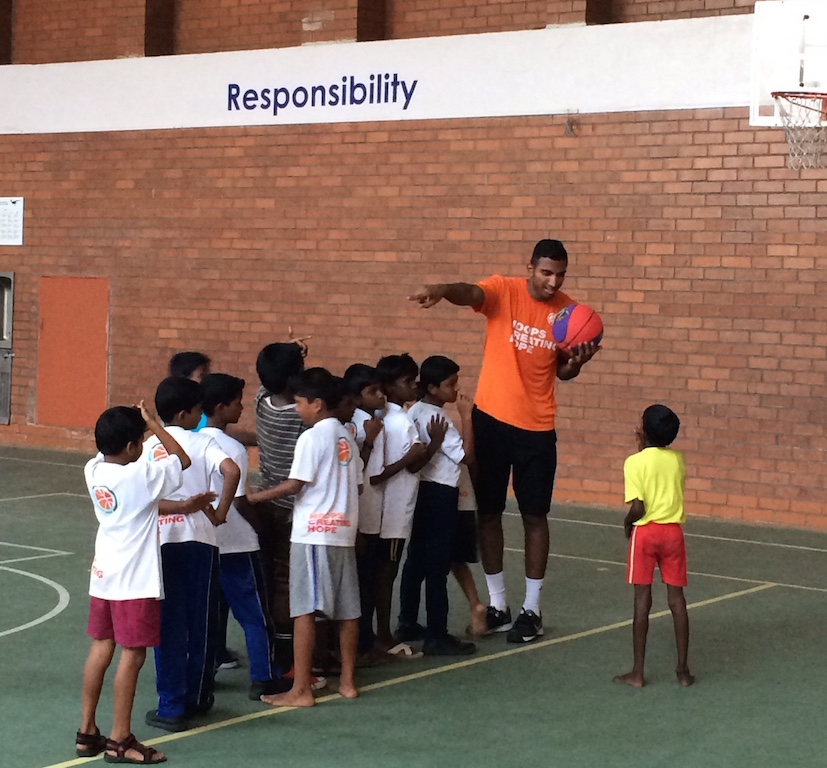By Sailesh Tummala
As I stepped out of our air-conditioned house in southern Chennai, and on to our bus with the privileged American International School badge on it, I had no idea what to expect. I’ve heard the stories from my family and even visited to India when I was young, but the perspective I’m seeing the world from now is much different.
India is a nation that prides itself on its burgeoning middle class, on its growing economy and its strengthening regional dominance. Yet as the country grows there is a divide among people. The rich are becoming increasingly rich and the poor…well they’re pretty much staying the same. Next to slums are modern buildings and factories. Next to beggars are massive monuments. There is even a paradox in culture. People here are strictly religious, but have no problem cheating and stealing from each other. They wont kill stray cows and dogs that roam the street out of religious fear, but they’ll steal billions from each other without an ounce of regret.
The bus pulled out of the compound and onto the street. The first thing I noticed – what most likely everyone noticed – was traffic. But its not a traffic that you see in America; its much, much different. No lane lines, no rules. It sounded like a free-for-all of honking. Cars, trucks, auto-rickshaws, motorcycles, mopeds, scooters, even people all moving along incoherently in a mass of organized chaos. Cars come within centimeters of each other, but somehow there is no panic. There is almost this mutual trust between people. Its like they know you won’t hit them no matter how much they swerve between cars, cut off pedestrians or even turn in front of speeding vehicles.
India is a country of paradox. There is this amazing mutual respect, but also a deep chasm of division.
As I looked out the window, I saw some of the most amazing and confusing sights. On this 100 degree, humid day everyone wore covered clothes. It was like clockwork: males with long pants, long sleeve shirts and sandals; females with full length multicolored saaris. They stood on the side of the street, squatted next to small fruit stands, and strolled through the tropic heat as stray dogs ran in front of them. It was like they were living life in slow motion, with a laid back casualty. Yet when you looked at their faces, they were stoic, serious as if trying to express some form of dutiful respect. Maybe its from their roots as an English colony. Maybe its because they knew we were American. “Yes Sir”, “No Sir” is the only way they would respond.
We stopped the bus and got out, and immediately peoples’ heads turned, fascinated as to who this group of Americans were. Yet their fascination revealed something much deeper about the people of India. It is as if the poor and impoverished here have no individuality, no ego. Its like they’re being suppressed. They look at you with yearning eyes as if they want the opportunity to have what you have and be what you can be, but see no chance in their life. They’ve become used to being told they’re not good enough, that their destiny is to pick trash, drive rickshaws or if they are really in luck be a servant to wealthier family. They seem objectified as just those poor squatters who have no story, who have no struggle, who have no pain. Or maybe that’s just how the wealthier get through with their lives.
Maybe that’s how us American’s get through with our lives, by thinking that poor around the world are “others” that we can’t empathize with what they are going through.
Yeah, you’re probably right. There’s no way I could empathize with people who earn less than $2 a day, live in dirty shacks without sanitation, running water or access to electricity. People who have no education (or even a chance at one and who are frowned upon as the waste of society).
As a man of south Indian heritage, when I look at my baby pictures and see what I looked like and then look over to what these children on the streets look like, I see a stark similarity. It’s a scary sight. I was blessed to have a family that worked hard, broke barriers and came to the United States to give me opportunity.
But these kids…they have no shot, mostly because they have no hope. I guess that’s why we’re here: to give them hope for a better future. Yet after spending just one day with these kids, I think it’s more than that. We’re here to give them a shot, the shot, to break barriers of their own.


